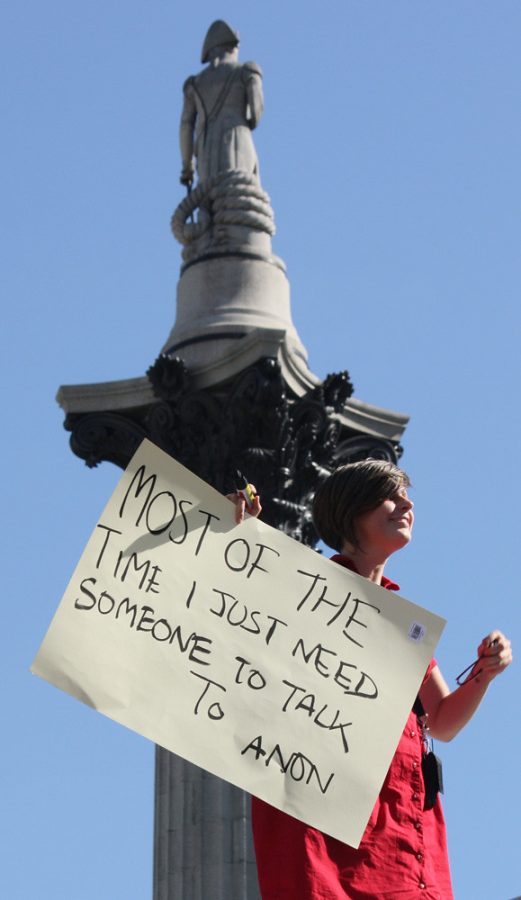Jae: Hi guys welcome back! My name is Jae!
Mel: I’m Mel.
Jae: And today we are going to be talking about mental health. And we want to talk about our trauma and share our experience and personal advice to other students or anyone out there.
Jae: Mental health, mental illness, and treatment is not one size fits all. It’s all a personal experience and we all have to cope in a different way. And we all have our own ways of saving ourselves or healing.
Jae: One..one example of trauma is, of course, generational trauma. Where parents are dealing with their own trauma and they never had the chance to heal from it. And which affects their children.
Mel: Most of the time, parents kind of tend to project their own insecurities and problems on their kids whether like intentionally or unintentionally. Like subconsciously uhh usually they have like those insecurities and problems because all of the unresolved trauma they (Jae: Mmhmm) are dealing with.
Jae: For example, my dad grew up with discipline from the Philippines. He’s from the Philippines and it crossed the line to the point where he still has scars on his legs.
Jae: And he would get hit just for like not washing this dish at a certain time or not doing homework at a certain time or just not doing things according to plan from his parents.
Jae: And while my dad was dealing with that trauma, my mother also dealt with a father who um didn’t really show a lot of display of affection with her mom and my grandfather always cheated on my grandmother.
Jae: And obviously the whole family was affected and he kinda just like neglected his children’s and including my mom’s emotions and stuff like that. So like growing up, all that trauma lingered on to me and my little brother.
Jae: And there were multiple times where like my emotions weren’t considered important and I was disciplined that was crossed the line and obviously I was traumatized by it.
Jae: Our parents are humans. They have their own mental health that wasn’t dealt with and my parents they were young when they had me. So like, I think they got pregnant when they were 19 and they had me when they were 20.
Jae: So they didn’t have that time to find theirselves and explore their youth because you know they had to raise me and my little brother. So because they didn’t heal from that trauma, it kinda that trauma and that um PTSD or whatever took control of their actions
Jae: and then they would try to say sorry to me about certain things they would blame it on that. With generational trauma, I feel like now that I’ve had more education on it and I understand it more and you know I’m old enough to realize and accept it
Jae: I wanna break that curse that um cycle. So definitely learning from my parent’s trauma and my trauma altogether will definitely help me in the future when I want my own kids.
Mel: And uh, another thing that caused trauma is whether being bullied at school, being bullied by your parents, being bullied online which is a new form and more common and prolific uh form of bullying these days
Mel: So verbal abuse can just kind of uh go from anything to degrading your kid like “you’re worthless”, “you are useless”, (Jae: Mhm) or calling them names “idiot”, “moron”, “dumb”.
Mel: Or just completely undermining their accomplishments and being rude, being dismissive, and uh being downright cruel.
Jae: Mhm. And I guess my experience with verbal abuse with bullying is like, throughout elementary and middle school, I was called “ugly”, I was you know I’m Filipina and you know I was being called like racist comments.
Jae: I felt like I had to change who I was and how I had to act in order for me to you know really fit in. And a part of me hated it because it’s not who I am and I wanted to be able to be you know comfortable in my own skin
Jae: But you know I had to change in order for me to not be like called “ugly”.
Mel: Definitely. I was also called “ugly” in school. I had this mop of curly hair and eventually, like the boys would eventually like start trying to stick things into my hair because like I said it looked like a tangled moppy mess and people just wanted to screw with me
Mel: some more. And I was always being picked on by the other little girls because of the way my mom dressed me because I wanted to play trucks instead of playing the dolls (Jae: laughing. yea) I wanted to get dirty on the soccer field.
Mel: And eventually, they started telling me that I’m not a real girl. That I should’ve been a boy and that I am a boy. Eventually uh all the other little girls just started saying that I was a boy.
Mel: And one day, they took it as far as to get physical that one girl. We were at recess and she just ended up shoving me into the boys bathroom which caused me to get in trouble with the teacher
Jae: And you know what’s so crazy, that throughout me being bullied, being called “ugly”, I felt like that really like that really started my insecurities on how I looked. Like “oh my god, I’m not pretty enough for the other girls”
Jae: Because I remember this freaking story. I was in middle school and I told my best friend at the time that I really like this guy. And she was like um, she was like “Okay let me go talk to him to see if he likes you back.”
Jae: I was like “ooo okay.” I was so excited. I thought I was a baddie or whatever and I come to find out that she went back to me and said “Oh yea he doesn’t like you. He thinks you’re weird and ugly.”
Jae: Like that hurt me from the heart. And I just like made me think that “Why can I not act normal?” you know. And that’s who I am, that’s who I meant to be, but luckily, I found someone who loves me for me, but yea. That’s the story.
Jae: Laughs
Jae: But anyways
Mel: Also, we would like to dedicate a segment for our LGBTQ youth or it doesn’t have to be youth. It could be anyone, you know who’s uh feels trapped in the closet. Um because they don’t want to deal with homophobic people.
Mel: People who just don’t wanna understand. People who would rather uh stick to their ignorant ideals than accept that things like this should be normalized. I still don’t see how people can see something wrong with same sex marriage
Mel: Same sex relations. It’s just. Well I hate to sound like every single like pride month t-shirt, but love is love. And um it shoudn’t have to be like this stressful thing of like “Oh my god my life is gonna blow up if I bring home my partner, who’s the same sex as me”
Mel: And you know people, I find it really unfair that people have to feel like they have to hold it in otherwise, you know their family or their living situation is going to blow up because unfortunately, we can’t change everyone.
Mel: If this is an ideal world, we’d all accept each other, but unfortunately whether religion, culture or just simply beliefs uh that is not supportive whether being transgender uh homosexual
Mel: um non-binary, it’s something that people probably won’t wrap their head around.
Jae: They’re not being, how do I say this, empathetic or feeling empathy for them
Mel: And some of them just refuse to even try
Jae: And you know what, it’s like for the all LGBTQ people who have to deal with all of these comments and all these physical harm and stuff like that
Jae: At the end of the day, no one asked for homophobic people to share their opinion
Jae: I’m not gonna judge upon you like “ew you like this person. Ew that’s disgusting” like I don’t care. That’s not my business regardless like I like someone
Mel: Like I got a gay friend and I’m not all criticizing for liking men. I’m criticizing for liking the type of men he likes (Jae: laughs) but the fact that he likes men makes no difference to me.
Mel: Like he’s still a good pal. It’s really. I don’t understand why people have to act like this huge deal
Mel: So um, unfortunately, dealing with a lot of like especially you know life uh. Life has very very funny ways of keeping us in line. Things can’t always go your way and sometimes
Mel: it can get really hard to deal with. And trauma of all things can really kind of destroy somebody. You know some people don’t really take this topic seriously and they tend to shrug it off
Mel: But PTSD, otherwise known as post-traumatic stress disorder, appears in a number of ways and what I feel like people need to understand is that it is so much more than being in a funk for a while
Mel: after something rough happened. No, it’s reliving the moment over and over. It’s experiencing survivor’s guilt. It’s experiencing suicidal thoughts feeling like you can’t bear the live after experiencing that
Mel: And I feel as though the word, depression is being thrown around. Like “Oh its depressing today. The sky’s are grey”. It’s not that kind of depressed.
Mel: I want to let y’all know that depression. It’s not you know crying while you suck down a whole bucket of ice cream. It’s because you got dumped. No, it’s lying in your bed. Not having it in you to get out of bed
Mel: and start your day. It’s letting your room get so disorganized and the mess is stressing you out, but you can’t bring yourself up to get up and clean and then you feel guilty for being lazy
Mel: and unproductive. And then transitions to thinking of all the things are wrong with you and then you start thinking that the world will be better place without you
Mel: So with depression, it’s taking those negative feelings and going deeper and deeper and deeper into a pessimistic pit. Depression is the inability to feel any form of satisfaction or pleasure even when you’re around things you normally love
Mel: but now you just simply can’t feel anything at all for them. It’s just being trapped in your negative intrusive thoughts. It changes your memories. Like everything that used to make you smile now just makes you sick.
Mel: It’s also not being able to take care of yourself, keep up with your personal hygiene. It is a debilitating illness that needs uh treatment. Unfortunately, it is one of the mental illnesses with the highest mortality rate
Mel: And depression can be chronic or last a few months, or it could be like seasonal depression, situational depression, being in a funk for a while or it could be major depression where it gets to the point where you
Mel: need to be hospitalized or medicated. So I feel like it’s important to provide support. For example, if you know you have a friend that is depressed and the room is a mess and if you can take time out of your
Mel: day to help them clean it (Jae: yea) or do it for them. If they don’t feel like eating anything, bring them snacks so that at least you know they have a little something in their belly.
Mel: Be there for them, that’s one way to kind of just, I wouldn’t say lift their spirits cause it’s, mental illness is one size fits all. It’s do what you can for your friend, be there for them, do not be that person who says
Mel: “Oh it could be worse”. It’s making them feel guilty for feeling the way they do. And pretty much telling them that the way they’re feeling is not valid.
Jae: Dude what you just said about being lazy, not cleaning up your bed or room and you’re feeling guilty about it, tell me why I have been dealing with that for the past three months.
Jae: I feel like I’m a very clean, not very clean, but like I consider myself as a very organized person, but lately I’ve been so down like my energy is so drained
Jae: I’ve been getting into my thoughts a lot and I haven’t been you know being organized and stuff like that. And I feel terrible about it cause like I Iive with my boyfriend you know and it’s like “dang like I feel like I’m not showing the organization of myself.
Jae: I feel humiliated for not cleaning after myself.” And I tell my boyfriend the truth like, “To be honest, I haven’t been feeling the right. I haven’t been feeling positive, that’s why I haven’t been cleaning.”
Jae: He said, “It’s okay.” He’s been doing more of the cleaning stuff while um (Mel: See supportive) Yea! That’s what I really like about him being there for me and I haven’t been diagnosed with that yet
Jae: cause I never really went to therapy.
Mel: I got diagnosed when I went to therapy with borderline personality disorder and for those who don’t know, it’s basically it’s also characterized as unstable mood disorder and that’s a whole big bucket of crazy
Mel: And I remember when I got my diagnosis, I was like “Oh well”. Cause my family on my dad side has a history of mental illness and I’m like “Oh great, I am screwed.”
Mel: I felt like I was doomed to live this miserable life of self-loathing, instable relationship. I was gonna be that person who got married six times and divorced six times and living with cats eventually.
Jae: Overall, mental health is a very serious thing to talk about. And I’m pretty every single person in the entire world is dealing with mental health.
Jae: And ways that I have started to heal from my trauma or maybe just cope with my mental health is I’ve actually, recently, I had a spiritual, awakening. And because of that, I’ve accepted the truama
Jae: I went through and I’ve started to transition into a different person where I enter a new phase in my life. It honestly, helps me so much, like I haven’t had any anxiety attacks or panic attacks. Knock on wood
Jae: what the hell (knocking) (Mel: laughs) and another think that I’ve done to help cope with my mental health and trauma, I do a lot of journaling. Sometimes I forget to do it, cause like I’m tired and I don’t have time to
Jae: write, but there days where like last night or yesterday night, I was dealing with a whole, I was just sad. I was going through a depressive episode, and I just decided that you know I’m just gonna listen to music
Jae: and write down my whole feelings. And healing has taught me to not be harsh on myself.
Jae: Mel, what are your ways of trying to heal and cope?
Mel: Well, I’m currently on that healing process. I feel like some people will be like “I’ve done all this and I’m depressed again”, if this serves any comfort, healing sometimes taking one step forward, a couple
Mel: steps back, but I would say healing is definitely self-reflection.
Mel: I would say definitely healing takes some time for self-reflection. Feel free to work on some parts of yourself that you don’t like, kind of destroy some habits, or you know if you have all this pent up rage
Mel: Pent up anger. Take it out on something inadament. So just kind of it flow because once you clear your head, you can start thinking rationally
Mel: Like “this is what I can do. I feel better” or just find any way to clear your head. Everyone has a different way of clearing their head.
Jae: To whoever is listening to this, I really hope that you embrace or really absorb what we have dealt with because you’re not alone and just remember that healing is a very slow process
Jae: And there’s no limit or time limit. Take as long as you want! As long as your goal at the end of that journey is to be happy and to be a better person and put this into your head that trauma does not define you.
Jae: So like don’t be afraid to talk to people, don’t be afraid to even take yourself out on a date. (Mel: buy yourself some flowers) yea!
Mel: Buy yourself some food. Doesn’t matter if it’s a small meal or you wanna get yourself the whole menu at Chic-fil-a (Jae: gasp Chic-fil-a) like whatever makes you happy.
Jae: But yea guys, I hope you enjoy our mental health podcast. My name is Jae.
Mel: My name is Mel and I really hope you took something out of our podcast and found it impactful and found it helpful, and cathartic. We look forward to seeing you again.
Jae: Byee!!











